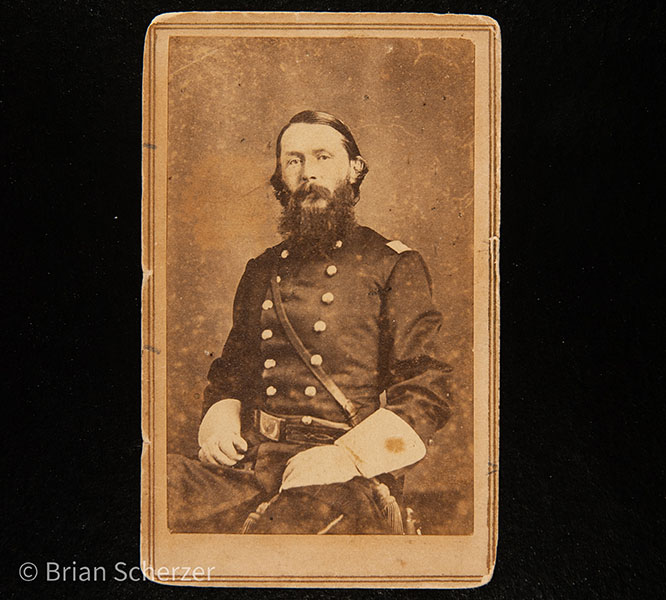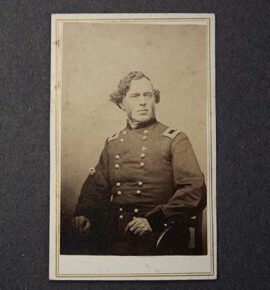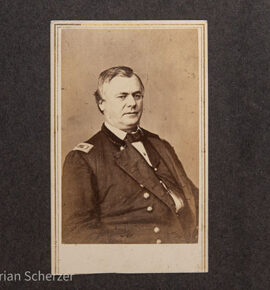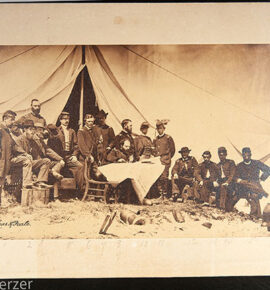Description
SOLD Rare image with a backmark by "M. Carpenter, photographer, Fourteenth Army Corps, Dept. of the Cumberland, Photographed by Ball & Thomas, 120 Fourth St., Cincinnati. Condition as shown in photo.
Lytle was a celebrated American poet before the Civil War. His most famous poem, "Antony and Cleopatra" (published in 1857), was beloved by both North and South in antebellum America.
When the Civil War erupted in 1861, through his political and military connections, Lytle was commissioned as colonel of the 10th Ohio Infantry. He and his brigade were assigned to western Virginia (now West Virginia), where they engaged in a series of small engagements in a campaign that led to the withdrawal of Confederate forces in that region, helping pave the way for statehood. Lytle was given command of a brigade of infantry. He was severely wounded in his left calf muscle in a fight at Carnifex Ferry on September 10, 1861, and was sent home to recover. After a four-month recuperation, Lytle was assigned commander of the Bardstown, Kentucky military training camp. Returning to field duty, he led a brigade in Maj. Gen. Ormsby M. Mitchel's division. He participated in Mitchel's operations along the Memphis and Chattanooga Railroad. Lytle was again wounded and taken prisoner at the Battle of Perryville in Kentucky on October 8, 1862. He was soon exchanged and rejoined the army. On November 29, Lytle was promoted to brigadier general of volunteers, and led his brigade in numerous engagements in the army of William S. Rosecrans. Admiring officers from his old 10th OVI presented him with a jeweled Maltese cross in September 1863, just eleven days before his death.
Lytle was mortally wounded at the Battle of Chickamauga in Georgia while leading a counterattack on horseback. Once his identity was known, Confederates placed a guard around his body, and many recited his poetry over their evening campfires.[2] The hill where he died is now known as "Lytle Hill" in the Chickamauga National Military Park.
His funeral was held in the early afternoon at Christ Church on Fourth Street in Cincinnati. So many people lined the streets that the funeral cortege did not reach Spring Grove Cemetery until dusk. Lytle's monument, one of the most impressive ones there, is near the entrance to the cemetery.






